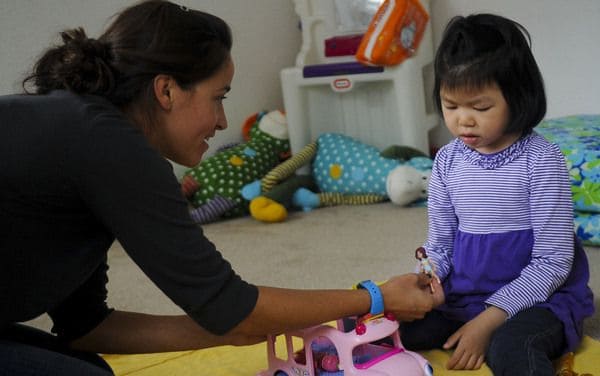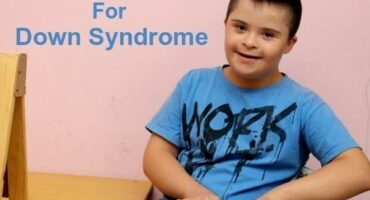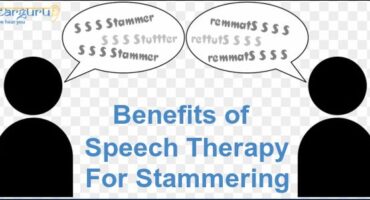Before we suggest Speech therapy for Autism, we should understand what is Autism? A little understanding of this disorder can help us understand the child’s behaviour and constructively interact with the child.
As per the 2018 data released by WHO on Autism, 1 in every 160 children has Autism spectrum disorder. Data from other reputed institutes show that boys have four times higher chances of Autism than girls. It is also observed that 33% of the children who have Autism are non-verbal. Since the primary issue is with speech or verbal and non-verbal communication skills, Speech therapy for Autism is highly recommended.
Table of Contents
- What Is Autism?
- What Are The Symptoms Of Autism?
- Signs of Autism in Babies before the Age of 6 Months
- Signs of Autism in Babies before the Age of 12 Months
- Signs of Autism in Babies before the Age of 24 Months
- General Symptoms of Autism at Higher Age
- What Are The Causes of Autism?
- Does Speech Therapy Work For Autism?
- Is Speech Therapy For Autism At Home Possible?
- How Can I Do Speech Therapy for Autism At Home?
- What are the Speech Therapy Activities for Autism At Home?
- Is Autism Curable?
What Is Autism?
Autism Spectrum Disorder (ASD), commonly known as Autism, is a neurological developmental disability. It’s a complex condition which affects the child’s communication skills, lack of concentration, limits their interests, and resists change and displays repetitive behaviour. The symptoms of this developmental disorder show up from a few months after birth to the age of 3.
What Are The Symptoms Of Autism?
Every child with Autism is unique. They do not display common symptoms or behaviour. Some children may have only communication disability while some may have also had problems in motor skills like walking or writing.
Parents should be alert and should seek professional help if they notice the following signs. Some babies show symptoms of Autism as early as 1 to 3 months, but mostly the signs are prominent by the age of 3 years.
Given below are the commonly observed behavioural signs of Autism
Signs of Autism in Babies before the Age of 6 Months
- Very limited or total lack of eye contact with the mother
- Does not smile much, occasional expression of joy
Signs of Autism in Babies before the Age of 12 Months
- Not making baby sounds or babbling on its own
- Does not imitate baby sounds made by parents and others
- No aggressive hand movements like pointing, grabbing, reaching out or waving
- Very rarely responds to name
Signs of Autism in Babies before the Age of 24 Months
- Picks up very few words for their age
- Rarely repeats words after the parents
- Does not use two words at a time
General Symptoms of Autism at Higher Age
- Difficulty in communication skills like eye contact while conversing
- Repeating words others are saying
- A Problem in understanding conversation
- Limited use of language or vocabulary
- Throwing tantrums or yelling
- Will not play with others and share toys
- Interact and develop closeness with the same friends
- Repetitive activities like playing with the same toy, eating the same food or watching the same TV show
- Has limited interests and likes
- Difficulty in speech, reading or writing skills
What Are The Causes of Autism?
- Hereditary is one of the primary reasons for Autism. The child inherits it from one of the parents or any close relative in the family.
- Genetic disorders or mutation is also a major cause of Autism. Fragile X syndrome is an inherited disease which results in learning disabilities.
- Viral infections at birth are also responsible for Autism
- Preterm babies carry a higher risk of Autism. (Only in extreme cases)
- Parents age is also one of the reasons, children of older parents are at a higher risk of Autism
- Environmental pollution, consuming food or water containing heavy metals like lead and mercury
Does Speech Therapy Work For Autism?
Speech therapy for Autism is the preferred therapy. As mentioned above, 33%of the children who have Autism are non-verbal, and almost all children with Autism have communication issues. Even if the child is verbal, speech therapy for Autism is necessary as they are unable to use words in proper communication. Non-verbal children can learn sign language or alternate means of communication.
Is Speech Therapy For Autism At Home Possible?
If your child is reluctant to attend a particular special school or visit the speech therapy clinic, it is advisable to call the speech therapist home. This approach is preferable to a delay or neglect in the starting of therapy. At times a particular special school or the therapist is far, and travelling might be an issue. In this case, parents can opt for speech therapy at home or teletherapy. The speech therapist can conduct the sessions remotely with the help of internet. All children who have Autism are not the same; the therapy or exercises are specifically selected after examining the child’s abilities. It is advisable to consult the therapist, whether teletherapy or remote speech therapy is advisable.

How Can I Do Speech Therapy for Autism At Home?
The speech therapist may not conduct therapy sessions daily. Parents should learn about simple speech therapy exercises as they are with the child throughout.
Many special schools and therapists compulsorily involve parents during the therapy sessions as the parents interact with the child in day to day situations which the therapist might not come across. Nobody knows the child better than the parents. In fact, the parents are the child’s first teacher.
It is easy for them to practice simple speech therapy activities with the child. The activities will help the child to improve faster rather than depending totally on the few sessions conducted by the therapist.
What are the Speech Therapy Activities for Autism At Home?
Parents should remember that every autistic child is different or unique. Exercises recommended for one child cannot be blindly used for the other autistic children unless the speech therapist particularly approves the activities.
- The first step in home therapy should be to make the autistic child comfortable. Establish a functional relationship, and communication should not be awkward. The child should be able to convey his essential needs. The child should not be hesitant in asking for food or water or other basic communication.
- Since verbal communication is not very fluent, parents should encourage play therapy. Note the toys the child likes and make games or situations around the toys to involve the child. Leaving the child alone with the toys is not enough; parents have to come down to the child’s level and enjoy playing with the toys as much as the child does.
Play therapy encourages the child to think, create situations which force the child to think and act. If the child is playing with a toy car, block the path of the toy car to make the child think and go around the block.
- It is very common for the child to get addicted to the screen. Reduce TV and computer screen time to minimal unless the child is playing an interactive game. Specially designed Interactive games as per the child’s age are acceptable.
- Parents should use picture playbooks compared to PCs and laptops. Pictures make great tools to help the child learn
- Encourage communication by imitating your child. The child will enjoy it and make more sounds. This will help the child to vocalise. Make the right sounds and encourage the child to imitate. While playing with a toy car, make sounds of a car moving.
- Leave gaps in your talk. Encourage the child to fill the gaps with the right sound or the right word
- For children who are non-verbal, use expressions as well as body language. Make more use of eyes, facial expressions as well as hand gestures to convey the message. Encourage the child to do the same. Parents can make use of assistive learning devices like picture cards and AAC or Augmented and Alternative Communication
- As the child grows, teach the child sign language. Parents should also learn sign language so they can help the child learn. Encourage the child to use sign language in everyday situations. This will add to the teachings of the speech therapist. Use simple single or two-word phrases and also convey the same through sign language until the child identifies the word to the hand sign. Reward the child once he uses the right sign.
- An autistic child is not socially ready to meet people or to make friends. You have to teach the child the basic social norms like how to say hello to a person they are meeting for the first time. How to introduce himself, how to and how far they should stand from the person. Parents can use role-play at home to teach the child, one of the parents can play the role of a guest.
- Make use of Applied Behavioural Analysis (ABA). It is widely used in therapy for Autism. Though parents are not trained in Applied Behavioural Analysis, but they can use the basic principles and apply them in their situations. The analysis allows parents to set simple task with goals and reward the child if the task is successfully completed. Parents can read about ABA Therapy for Autism for more information on this topic.
Is Autism Curable?
Unfortunately, there is no cure for Autism. It is best to detect early and start therapy. Besides speech therapy, an autistic child may also require some help from the following therapists.
- Physiotherapist
- Occupational therapist




Thanks for sharing the valuable information about SLP therapy.